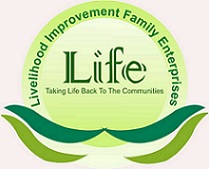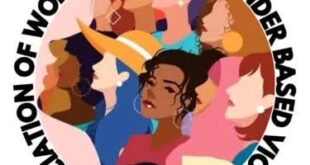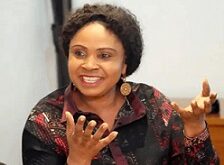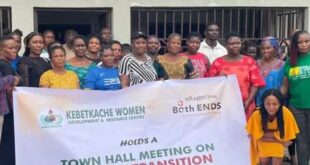By Paul Williams
Against the backdrop of rising poverty levels, over 7,000 unemployed and under-employed youths and women in the nine states of the Niger Delta have been enlisted into the Federal Government/NDDC/IFAD assisted LIFE-ND project.
Addressing the media in Port Harcourt on Friday, national project coordinator of the Livelihood Improvement Family Enterprises – Niger Delta project, Engr Sanni Abiodun, said the programme, which seeks to lift youths and women out of poverty, has in the past two years recruited over 7,000 persons, as well as created close to 5,200 jobs.
“We have had two years plus in implementation, and for now, we have been able to provide close to 5,200 jobs across the six states of the Niger Delta where we are working, while we have enlisted over 7,000 entrepreneurs that are currently undergoing training in their various incubation centres,” he said.
Abiodun, who said that the goal is to transform the rural economy in the Niger Delta, through the development of agribusiness and agro-entrepreneurs, noted that the level of acceptance of the LIFE-ND project in the region has been quite huge.
“There is so much enthusiasm on the part of the youths who have decided to hold their destinies in their own hands, to demonstrate that relatively the youths of the region are hardworking and are ready to embrace agriculture.”
LIFE-ND, which is an acronym of Livelihood Improvement Family Enterprises – Niger Delta project, covers the nine states of the Niger Delta – Abia, Akwa lbom, Bayelsa, Cross Rivers, Delta, Edo, Imo, Ondo and Rivers. The project was designed by the Federal Government, in conjunction with the Niger Delta Development Commission (NDDC) and the International Fund for Agricultural Development (IFAD), to transform the rural economy in the Niger Delta, as well as enhance job creation and food security through the development of agribusiness enterprises for beneficiaries in the Niger Delta region.
LIFE-ND’s national project coordinator, Engr.Abiodun, noted that the project had seven priority commodities which are cassava, rice, oil Palm, fishery, poultry, cocoa and plantain and targets beneficiaries from 10 local government areas in each state of operation and 10 communities in each of the local government areas.
The primary intended beneficiaries of the project include the unemployed and under–employed youths aged 18-35; women–headed households with children under the age of 15, while the project is designed to be implemented over a period of 12 years – divided into two phases of six years each.
Abiodun said the first phase entered into force on 21 February 2019, while the completion date is 31 March, 2025, and financial closure scheduled for 30 September, 2025.
LIFE-ND’s Rural Institution, Gender & Youth coordinator, Dr Clement Uwem, said that the programme is not restricted to the male gender alone, but is “gender transformative,” and seeks to empower as many females as it can to become agro-entrepreneurs.
He said the measure of females to males recruited into the programme is in a ratio of 50:50, adding that about 5% of those engaged are physically challenged, while 25 percent are persons of female-headed households.
LIFE-ND’s project coordinator for Abia State, Dr. Uchenna Onyeizu, described the state as being in the forefront of the six active states, in terms of performance, when compared to the five other states currently active in the programme.
This he attributed mostly to Abia State being the first to pay its counterpart fund, adding that this helped the state project team to “begin from day one.”
Dr. Onyeizu said that Abia State is “working in four agro commodities – rice, oil palm, poultry and cassava production. We have about 1,250 beneficiaries amongst which are physically challenged, women- headed households and young persons between the ages of 18 and 35.”
One of the beneficiaries of the programme, also called incubatees, Michael Stanley, from Delta State, commended LIFE-ND for changing the lives of Niger Delta youths for the better.
“I have been able to start my own poultry farm, which I built with the support of LIFE-ND. I got some facilities before they (LIFE-ND) eventually gave me the start-up capital. As it stands now, I am looking for more hands, I want to employ more persons to assist me because the work is already growing,” he said.
Another incubatee, Diepreye Awara, from Bayelsa State, said he was “unemployed, with no hope. But LIFE-ND changed my life.”
Awara noted that formerly he didn’t know where the next meal was going to come from before he came into contact with LIFE-ND, adding that now he has diversified into other businesses, and “all because of LIFE-ND.”
 PH Mundial – Port Harcourt Online Newspaper News Across The Region
PH Mundial – Port Harcourt Online Newspaper News Across The Region





